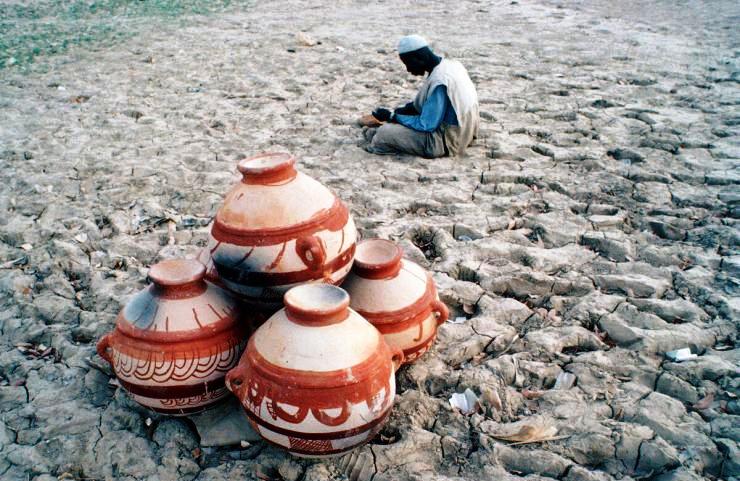Voices are growing louder daily that our planet is grappling with an environmental crisis. Our environmental concern should not limit itself merely to pressure and protest but should lead to a change of attitudes that leads to effective action.
Voices are growing louder daily, crying hoarse that the planet is facing an environmental crisis. We hear of global warming, acid rain, ozone depletion, climate change, biodiversity loss, topsoil erosion, tropical deforestation, desertification, underground water depletion, and pollution. We pollute the earth with unimaginable indifference.
Garbage accumulates in cities worldwide. Millions of tons of rubbish, toxic chemicals, medical waste, fertilizers, and crude oil are accidentally or deliberately dumped into the ocean. The rubbish that we empty into oceans, rivers, and seas moves around the world in currents, depositing the waste as far as the Antarctic and Artic, and on coral reefs.
In the year 755, Du Fu, a Chinese poet wrote, “The State is destroyed, but the mountains and rivers survive.” Today, the opposite is true. We tear down mountains for minerals, humiliate rivers, insult lakes, mow down forests, exhaust the soil, bring down the fecundity of the oceans, and threaten every living form.
The atmosphere is constantly attacked by the ‘greenhouse effect’ depleting the ozone layer. The poisoning of springs and lakes, and groundwater systems continues unabated. Over-exploitation of soil interferes with the self-renewing processes of life systems. Life-sustaining energies are being depleted and degraded. Everything is sacrificed to the modern Divinity which we call the economy.
People are so excited about acquiring the most modern gadgets and other consumer goods that they have oriented all human life to earning and owning. There is no room left for growing more human: cultivating human sentiments, the compassion of heart, understanding the mind, or gentleness in dealings. And suddenly we discover that we are no more than mere robots at the service of an economy without heart and mind.
The export-oriented “economy of exaggeration” reduces hundreds of thousands of people into the slavery of cheap labour. Edward Echlin calls it the “ecological sin.” When we speak of ‘economic miracles’ and boast of economic leadership, we forget that there is a human price to be paid for every step forward, a burden that reduces weaker persons and communities to the status of victims of the so-called ‘national development.’
How impersonal modern technology is regulating our lives has something to do with bullying attitudes that we have developed towards each other and nature. The consequences have been disastrous. Pope Francis says the “vision of ‘might is right’ has engendered immense inequality, injustice and acts of violence against the majority of humanity, since resources end up in the hands of the first comer or the most powerful: the winner takes all” (Laudato Si, n. 82).
When we are hurting our “sister earth,” we are hurting our common home, something that we have been doing during the last two hundred years in a big way (Laudato Si, n. 53). In the past, we thought that ethics were concerned merely with inter-personal relationships. But today we cannot afford to place our relationship with nature and other living species beyond ethical considerations. We cannot declare an division against other living beings, setting them aside as ‘not-us’?
Deforestation on a massive scale is causing immense harm. Cutting down trees and under-bushes leads to flooding, continuous soil erosion, the ruin of the marine environment, and desertification. Entire civilizations have died out due to the over-exploitation of nature, whether in Mesopotamia or the Indus Valley.
The tragedy today is that fertile land is handed over to mighty economic structures that exploit the local economy and the indigenous people. Governments tend to favour monoculture crops to boost their export, and profit-makers rush in to take immediate advantage of the situation. But in the long run, single-crop economies prove to be highly fragile. The reforestation programs they announce are never carried out.
Communities in the neighbourhoods should join hands together in view of conscientization against the felling of trees, for the protection of vegetation, for herbal gardens, watershed management, and for neat and tasteful maintenance of campuses and surrounding areas.
Our environmental concern should not limit itself merely to pressure and protest but should lead to a change of attitudes that leads to effective action. Are we losing the capacity to see the beauty in nature that poets had, the goodness in people, wisdom in cultures?
The great Indian poet Rabindranath Tagore whispered thus, “Silence, my soul, these trees are prayers.” Wonder admits that there is a deeper reality hidden and a wiser rhythm ordering all things. Wisdom consists of living in tune with the way things are in the cosmos, nature, humanity, and society. When we do that, we do not take up environmental issues in a partisan and fanatic fashion but in a holistic and integrated manner; we will not ignore people’s spiritual, philosophical, and societal needs. We work for harmony. Thus sang Tagore, “I asked the tree, speak to me about God. And it blossomed.” (Photo: UN Photo/John Isaac) – (Mons. Thomas Menamparampil/Archibishop of Guwahati,India).







